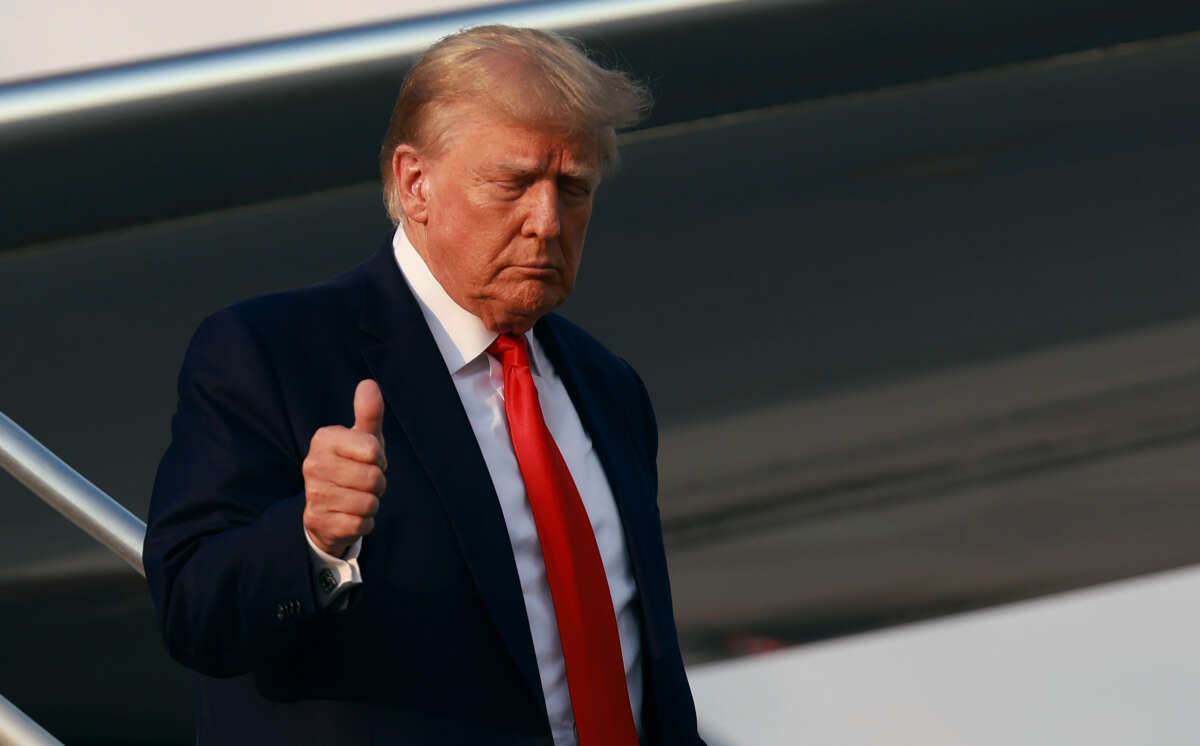A Georgia Republican indicted alongside former President Donald Trump in the sprawling Fulton County racketeering case blamed Trump and his campaign for his role in the fake elector scheme.
State Sen. Shawn Still, the only Republican lawmaker indicted by a grand jury earlier this month, “as a presidential elector, was also acting at the direction of the incumbent president of the United States,” his attorney Thomas Bever argued Thursday in a court filing flagged by Politico. “The president’s attorneys instructed Mr. Still and the other contingent electors that they had to meet and cast their ballots on Dec. 14, 2020.”
The filing came as Still, like several other defendants, seeks to move his case to federal court, arguing that he was acting under the direction of a federal officer — the incumbent president. The attorney also argued that he is immune from state prosecution under the Constitution’s Supremacy Clause.
Still’s filing echoes arguments made by fellow co-defendant and former Georgia GOP Chairman David Shafer, whose attorneys also said in a filing that he and other electors “acted at the direction of the incumbent President and other federal officials.”
Still’s attorney said in the filing that Shafer called a meeting of prospective electors at the Georgia Capitol building on December 14, 2020, where a Trump attorney told them it was necessary for them to meet to preserve the campaign’s challenge of the election results in the state.
“Per the attorney’s advice and under the belief that the contingent vote was necessary to preserve the right to lawfully contest the election, Mr. Still cast a contingent ballot in his capacity as a contingent presidential elector,” the filing said.
Legal experts said that the developing dynamic was likely part of Willis’ strategy when she charged Trump alongside 18 other defendants.
“One of the advantages of charging many defendants is that their defenses are often inconsistent. Willis had to expect that the fake electors would point the finger at Trump and his attorneys,” tweeted former federal prosecutor Renato Mariotti.
“When defendants start pointing fingers at each other, it usually spells trouble for the higher ups,” agreed former U.S. Attorney Harry Litman, calling it an “increasingly dicey legal situation for Trump.”
Shafer’s attorneys similarly sought to move the case to federal court, arguing that he was acting at Trump’s direction.
“Attorneys for the President and Mr. Shafer specifically instructed Mr. Shafer, verbally and in writing, that the Republican electors’ meeting and casting their ballots on December 14, 2020 was consistent with counsels’ advice and was necessary to preserve the presidential election contest,” his lawyers argued.
Georgia State Law Prof. Clark Cunningham told CNN on Wednesday that Shafer’s argument “could be devastating for the former president.”
“Shafer explicitly places the entire responsibility for the fake electoral scheme squarely on Donald Trump,” he told the network. “He says, ‘I was acting at his personal direction.’ He does that because he’s trying to get into federal court under a law that says even if you’re not an officer of the United States, if you are acting under the officer’s direction, you can get to federal court. He is making that statement to get to federal court, but at the same time implicating Trump directly in the fake elector scheme.”
8.22.23 3:25 PM ET True Legal Intelligence on Display as Brianna Keilar @brikeilarcnn hosts Professor Clark Cunningham W. Lee Burge Chair in Law & Ethics, Georgia State College of Law @ClarkGSULaw and CNN Legal Analyst Legal Analyst Norm Eisen @NormEisen
— Jeff Storobinsky (@jeffstorobinsky) August 22, 2023
(6:03 ) pic.twitter.com/wGieNzVBU9
Our most important fundraising appeal of the year
December is the most critical time of year for Truthout, because our nonprofit news is funded almost entirely by individual donations from readers like you. So before you navigate away, we ask that you take just a second to support Truthout with a tax-deductible donation.
This year is a little different. We are up against a far-reaching, wide-scale attack on press freedom coming from the Trump administration. 2025 was a year of frightening censorship, news industry corporate consolidation, and worsening financial conditions for progressive nonprofits across the board.
We can only resist Trump’s agenda by cultivating a strong base of support. The right-wing mediasphere is funded comfortably by billionaire owners and venture capitalist philanthropists. At Truthout, we have you.
We’ve set an ambitious target for our year-end campaign — a goal of $250,000 to keep up our fight against authoritarianism in 2026. Please take a meaningful action in this fight: make a one-time or monthly donation to Truthout before December 31. If you have the means, please dig deep.
